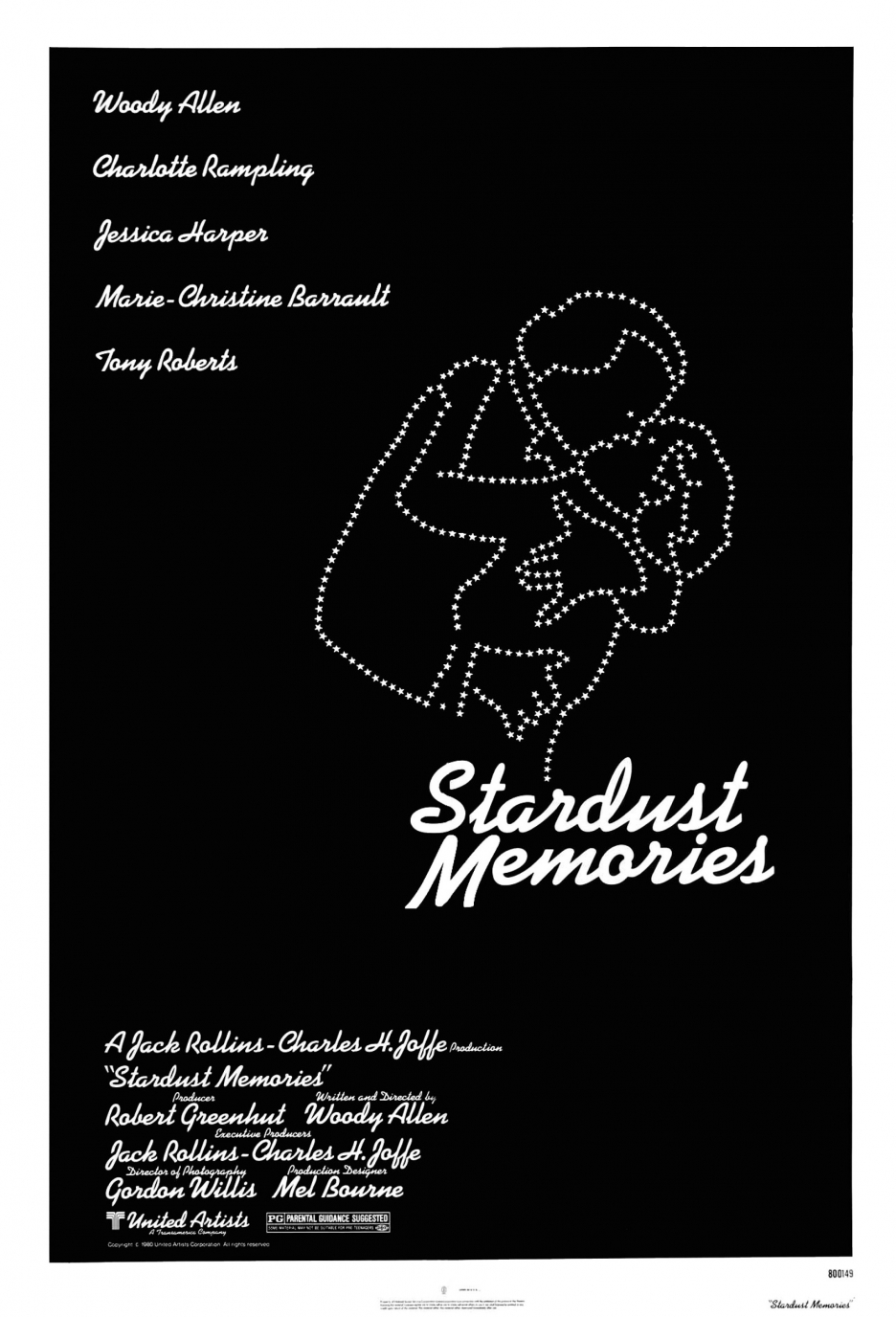

His direction is also intrinsically interesting, especially how he uses the unique, dark, and evoking cinematography by the great Gordon Willis, and the unusual editing stylizing by Susan Morse (though, once again, some of these editing tricks are to Fellini's credit). Even if one doesn't laugh, it definitely shows the work of a wonderful writer at the peak of his game. The script contains some of the most memorable moments of Allen's career in one-liners (there are a few from the fans and autograph-hounds that stick out) and in having a natural flow, close to a type of poetry, in the conversations and dialog in the film. Bates is another one of those Woody characters that seems all the more impressively formed and executed since it feels like the Woody we know, but Bates is just a little more on the edge of satire, viewing into his own self-doubts and trying to see if there can be any hope or meaning to it all- or if he can tell funny jokes. There are moments that Allen's stand-up act is injected into the mix, or a scene that could've been a chapter from one of his books, but mostly the audience gets the sense of his OWN love of cinema via Sandy Bates.
Stardust memories movie#
In short, a lot of the 8 1/2 dues were my least favorite parts in the movie (though I did like the quick Superman-type mementos).īut does that make Stardust Memories a failure, pretentious? Not to my point of view- once Allen starts the story rolling, and he gets his characters/actors into the gist of the film, it goes along like most other Allen films involving phobias, fears, loves (women), and sophisticated sense of varied parody. But while Fellini made his film out of a burning need to reveal all of his love for cinema out of his angst(s) after La Dolce Vita, Allen's track record shows that he's near incapable of waiting around too long to make a film (he's averaged nearly a film a year in 37 years up till 2003) so much of what comes forth in Stardust Memories isn't as much autobiographical as it is told through a character filtered with and not with himself. I could see what Allen was doing, for example, with the scenes and instances of tipping the hat to Fellini and his masterwork 8 1/2- the two films share that common thread of an artist in an overall funk of bittersweet memories and creative confusion. This is not to say that the film is one of his very best.

and, in Sandy Bates, the lead of his satire on celebrity, loves, and his usual themes of turmoil over life and death, is a sense that Woody Allen is doing one of two things (or both perhaps)- taking from his own life and thinly disguising characters and situations, or using his own public image in film's culture to look through the looking glass slightly at some of his popular themes. Reviewed by Quinoa1984 9 / 10 Imperfect, but it's still one of Woody's smartest scripts, with other incentives. He also reflects specifically on his love life as his current girlfriend, married Isobel, shows up unexpectedly, and as he starts to fall for festival attendee Daisy - at the festival with her Columbia professor boyfriend, Jack Abel - who reminds him of Dorrie, a neurotic former girlfriend who he probably considers the one that unfortunately got away. Despite the throng of requests for his time, he is further able to reflect on his life as he addresses the questions at the post screening Q&A sessions. He reluctantly agrees to attend a weekend long film festival of his movies.

Most are fighting him all along the way, including the movie going public, who continually tell him that they love his movies especially the earlier funny ones, to studio executives who are trying to insert comic elements wherever possible into his current movie in production.

Stardust memories professional#
Renowned filmmaker Sandy Bates is in a professional transition, directing largely comedies early in his career now wanting to direct more serious movies so that he can explore the meaning of life, most specifically his own.


 0 kommentar(er)
0 kommentar(er)
